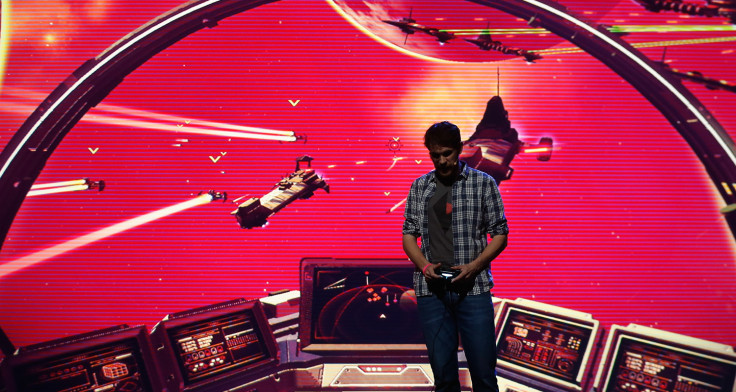E3 2016: Games are being announced too early, and something needs to change

Every year when E3 comes around, it's the same old story. Publishers descend upon the streets of Los Angeles, armed with a sizzle reel of highly polished clips and a goody bag full of marketing buzzwords to dazzle us into a stupor of hype as they demo the next big thing. After doing so, they leave just as quickly as they arrived, typically offering little genuine idea of when their game will actually be released.
As you can imagine, this is a bit of an issue, as it's not always clear whether the vertical slice being paraded on stage is going to accurately represent the finished product when it eventually launches years later. By jumping the gun and surfacing too early, publishers aren't selling us a game, they're selling us a concept, with no guarantee that it will ever match the expectations set. If the past few years have taught us anything, it's that E3 stage demos should be taken with not just a pinch of salt, but a truckload.
Ubisoft is by far one of the worst offenders. Take The Division. First announced back in 2013 to an overwhelmingly positive reception, Ubisoft showed us the ruined city streets of New York, cluttered with debris and soaked in despair. It looked fantastic.
From the outside looking in, it seemed a fleshed-out experience packed full of fancy menus that appeared in the world, player-controlled drones that could just pop in and lend you a helping hand, and a believable rendition of Brooklyn on the brink of destruction.
Almost three years later the game was finally released, and it looked very different. The flashy menus were toned down, the drones were axed, and Brooklyn was converted into a slimmed down tutorial section with more queues than a Monday morning Starbucks.
And that's the problem. By revealing games too early, publishers tease intangible promises they may never be able to fulfil as a game changes throughout the development process. We weren't watching the game back in 2013, we were watching the concept. The vision that the developers at Massive Entertainment had for The Division fell far from the mark when it released earlier this year, much to the disappointment of those seduced by the initial gameplay footage.
It's not the first time they've done this either. A similar situation arose when Watch Dogs came out in 2014, two years after it was first revealed. It didn't take long before people started to notice that the edgy, lived-in Chicago streets had been lost somewhere between announcement and launch. Instead, we were given the lifeless grey city that came with the final game, and the whole concept of weaponized hacking felt more like a gimmick than a tangible, important feature.
When it comes to announcing a game too early, player expectation is by far one of the hardest things to manage, but sometimes saying too little can be just as bad as saying too much. No Man's Sky, the near-infinite space exploration game from Hello Games, was announced at the Video Game Awards back in 2013. During the event, we got to see a small glimpse into the sci-fi exploration game, and whilst it was brief, it was enough to send the internet into a frenzy.

The problem, however, came when a year passed and we still knew next to nothing about the game. New trailers surfaced sporadically, ultimately showing the same content in a different colour palette. As time passed, the mystery surrounding the game's actual content grew in parallel to the impatience of those who had bought into the hype of that initial trailer. It's telling that, almost three years since it was originally revealed, there's still a degree of animosity (warranted or not) towards No Man's Sky and its creators.
It doesn't have to be this way. It's fair to say Bethesda managed to find the sweet spot when they revealed Fallout 4 at their E3 2015 conference, only six months prior to releasing it. They were able to show off something concrete that fans of the series could put their trust in. They didn't have to rely on a mixture of pre-rendered footage and specifically orchestrated faux-gameplay to get the gist across.
Not every game carries the weight of recognition a series like Fallout does, but the level of success found with that game last year just goes to show that shorter periods of time between announcement and release, can be beneficial. Ubisoft seems to have learnt its lesson too. Watch Dogs 2, announced this week, takes a wholly different approach – debuting, with gameplay footage, just five months before its scheduled released.
Ultimately, when a publisher makes the call to present an early build at E3, it's a gamble that frustrates players more than it pleases them. Gamers would appreciate if publishers followed Bethesda's lead, but sales numbers often speak for themselves.
For the latest E3 2016 news head to IBTimes UK's hub page
© Copyright IBTimes 2025. All rights reserved.


















